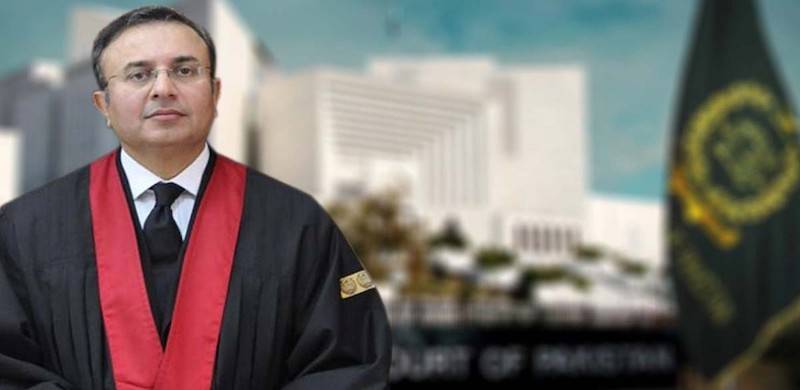
The Supreme Court of Pakistan on Wednesday questioned the exemption to military officers from accountability over major national decisions.
How can military officers be exempted from accountability, asked Justice Mansoor Ali Shah, during the hearing of NAB amendments case.
A three-judge bench led by Chief Justice of Pakistan Umar Ata Bandial heard the case, in proceedings on a plea by Pakistan Tehreek-e-Insaf chairman Imran Khan, today (December 14).
The former premier's counsel defended NAB's exemption to military officers, saying they can be probed after their retirement.
To this, Justice Mansoor asked if the military in any part of the world had the same exemption.
He then asked as to why civil servants didn't have the same exemption, before asking if one had to wait for 40 years for a military officer to retire to hold them accountable for any corruption.
The judge further asked if a military officer may be subjected to accountability if deputed in a federal or provincial institution?"
Speaking on the occasion, Justice Ijaz-ul-Ahsan said army officers [are held accountable] under Army Act, not the NAB law, in view of national security.
Highlighting that the officers commissioned are in service for 18 years only, he said armed forces have their own internal system of management and accountability and the punishments are harsher as well.
However, Justice Mansoor pointed out that the NAB law doesn't specify the Army Act clause and that it could limit NAB's jurisdiction.
How can the armed forces be exempted from accountability on national decisions along the lines of the exemption granted to the Prime Minister and the chief minister, the learned judge asked.
How can military officers be exempted from accountability, asked Justice Mansoor Ali Shah, during the hearing of NAB amendments case.
A three-judge bench led by Chief Justice of Pakistan Umar Ata Bandial heard the case, in proceedings on a plea by Pakistan Tehreek-e-Insaf chairman Imran Khan, today (December 14).
The former premier's counsel defended NAB's exemption to military officers, saying they can be probed after their retirement.
To this, Justice Mansoor asked if the military in any part of the world had the same exemption.
He then asked as to why civil servants didn't have the same exemption, before asking if one had to wait for 40 years for a military officer to retire to hold them accountable for any corruption.
The judge further asked if a military officer may be subjected to accountability if deputed in a federal or provincial institution?"
Speaking on the occasion, Justice Ijaz-ul-Ahsan said army officers [are held accountable] under Army Act, not the NAB law, in view of national security.
Highlighting that the officers commissioned are in service for 18 years only, he said armed forces have their own internal system of management and accountability and the punishments are harsher as well.
However, Justice Mansoor pointed out that the NAB law doesn't specify the Army Act clause and that it could limit NAB's jurisdiction.
How can the armed forces be exempted from accountability on national decisions along the lines of the exemption granted to the Prime Minister and the chief minister, the learned judge asked.

